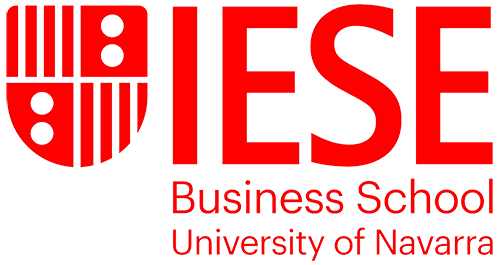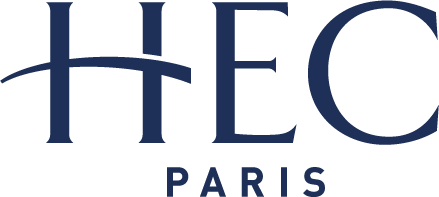EuroTeQ Teaching Fund Projects 2021 - 2023
- Digitainability for EuroTeQ Universities, Student challenge to promote digitalization and sustainability at EuroTeQ Universities providing specific micro-credentials for participants, Prof. Dr Stefan Wurster & Dr. Markus B. Siewert
- Biomimetic Challenge, Development of an interdisciplinary, highly digital collaborative program to introduce students from various disciplines to teamworking on nature-inspired solutions, Prof. Dr. Harald Luksch
- Introduction to Sustainable Production – A Sense of Urgency, We will pilot a micro-credential in the area of Sustainable Production, Prof. Dr. Michael Zäh & Dr. Susanne Vernim
- LOOP: Approaches, theories and practice of the Circular Economy, Development of a teaching module in the format of a micro-credential focusing on the topic of the circular economy, Prof. Dr. Magnus Fröhling together with DTU colleagues
- Biothermodynamics: an innovative micro-credential, connecting life, natural and engineering sciences across EuroTeQ campuses, Micro-credential in Biothermodynamics, Prof. Dr. Mirjana Minceva & Marko Popovic together with EPFL
- Remote Energy Lab – Redox Flow Battery, International lab course with remote experiments, Prof. Dr.-Ing Matthias Gaderer & Daniel Klüh together with CTU and TalTech
- Additive Manufacturing of the Future (AMore), the course will present a framework for reinventing and designing products using the potential of Additive Manufacturing, Prof. Dr. Peter Mayr together with DTU, BMW and UnternehmerTUM
- E.A.R.N. (L.earning E.nvironment for A.rchitectural R.obotics for N.ewbies). – Professor Kathrin Dörfler
- Remote Energy Lab – Redox Flow Battery. – Professor Matthias Gaderer & Daniel Klüh
- Data science in Democracy building and Social Media. – Professor Yannis Theocharis (Social Sciences and Technology) & Patrick Lenz (Institute for LifeLong Learning)”
- Metal additive manufacturing: from theory to practice. – Professor Peter Mayr & Dr. Zirong Peng
- Measuring light and illumination for Human Health. – Professor Manuel Spitschan
- Technical Aspects of Sustainable Production. – Professor Michael Zäh & Dr. Susanne Vernim
- Student challenge: Sustainable Smart Cities. – Professor Stefan Wurster (Social Sciences and Technology)
- Challenge-Based Learning in Design Computing, Henri Achten
- Automotive Transmissions – new teaching formats, Gabriela Achtenova
- Remote energy labs, Tomáš Bílý
- Lecture caffè, Mattia Butta
- Agile Bootcamp, Libor Cupal
- Micro-credentials for Machine Learning, Boris Flach
- Interactive notebooks for a course on quantum computing, Aurel Gabris
- Virtual laboratory for electrical measurements, Diana Hrakova
- Leading technology innovation projects through practice in Pandemic time, Marek Jemala
- Air Traffic Control and Radiotelephony Simulator for Remote Teaching, Milan Kamenik
- Creation of an online library for Circuit Technology courses, Yann Kowalczuk
- Interactive jupyter notebooks, Dmytro Miskhin
- Visual design – fusion of arts and technology, Kateřina Nováková
- Transportation graph algorithms, Alena Rybičková
- Multidisciplinary field course without teacher assistance as tool for distance format teaching for contact subjects, Tomáš Štor
- EuroTeQ Structural Steel Virtual Excursion, František Wald
- Modern Methods of Optimization+, Jan Zeman
- Stainless Steel and Aluminium Structures Online, doc. Ing. Michal Jandera, Ph.D.
- Virtual Laboratory for electrical measurements – continuation of ongoingproject TF 2021, Mgr. Diana Hrakova
- Implementation of a remote access to existing laboratory measurement devices, Ing. Yann Kowalczuk
- Modern methods of surface texture analysis and space and volume parameters, Ing. Lucie Hlavůňková
- The use of Computational Tomography in quality part inspection within Quality class, Ing. Libor Beránek, Ph.D.
- Soil Physics for Engineers, Ing. David Zumr, Ph.D.
- Light and Illumination for Human Health – Realm Life Appl, Ing. arch. Lenka Maierová, Ph.D.
- Agile Bootcamp, Ing. Libor Cupal
- 3D printed shelters for refugees, Ing. arch. Kateřina Nováková, Ph.D.
Find more information on these courses on the CTU website
- Sustainable cellulose derivates, Prof. Andres Krumme
- Introduction to programming, Ago Luberg
- Genome informatics, Prof. Olli-Pekka Smolander
- Biomedical Microelectromechanical Systems (BioMEMS), Tamas Pardy
- Online statistics course, Kaja Lutsoja and Jelena Matina
- Introductory course: Essentials of Digital Health, Kadi Lubi
- Present Yet Not There (PYNT). A hybrid micro-credential course on introducing telepresence robotics capabilities for improved social interaction in distance and hybrid learning in multicultural and inclusive higher education, Janika Leoste
- English version of a programming language course (Mechanisms of an Object-Oriented Programming Language) – Benjamin Werner
- European culture course – Julie André, Antoine Guibal, Isabelle Schaffner, Olivier Bertrand
- Nano Magnetism, Reinoud Lavrijsen
- Systemdesign Engineering, Ion Barosan
- Programming, Mark van den Brand
- Developing an Entrepreneurial mindset through serious games, Robin van Oorscot







